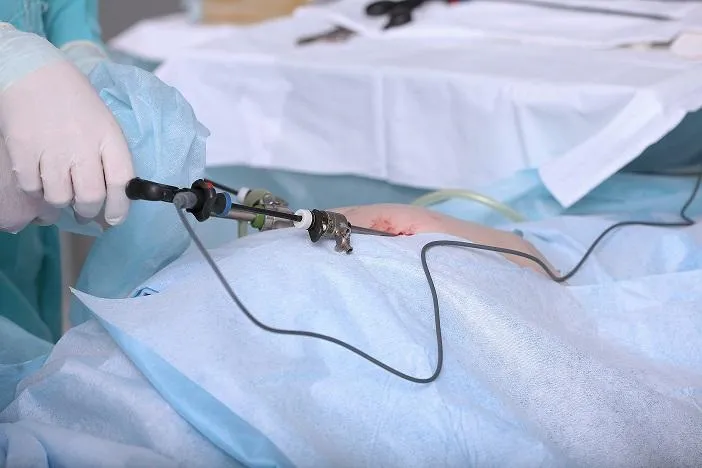Laparoscopic Hernia Surgery
April 30, 2022
A hernia is a medical condition caused when the internal organs find a weak spot in the muscles or tissues and push through it. It may be due to the opening or weakening of any fascia muscle. Hernia can be of different types depending on the location and can be treated surgically. Laparoscopic surgery involves inserting a laparoscope (a thin telescope) through an incision made in the belly button under general anaesthesia. It is one of the most successful treatments for hernia and has better recovery chances than other treatments.
About the Laparoscopic Hernia Surgery
The laparoscope is a long and thin telescope often used during general surgery of the pelvic region. Doctors make a small incision in the lower abdominal area and insert the laparoscope. It has a camera that helps surgeons see the hernia. The camera feed also allows them to remove the defect without injuring any adjacent cells carefully. Surgeons must be very careful not to damage any blood vessel while performing this procedure. Once the hernia sac is removed, a prosthetic mesh is used to cover the defect. The incision is finally closed with stitches that dissolve after some time.
Who qualifies for laparoscopic hernia surgery?
If the patient's hernia is found to be critical, a doctor might recommend surgery. Patients showing the following symptoms might have to be operated upon:
- Incarceration: If your abdominal tissues, such as tissues of the intestine, trap the abdominal wall, it is called incarceration. The doctors will recommend surgery for incarceration because it can lead to strangulation if not appropriately treated. In strangulation, the blood supply to the tissue (say intestinal tissues) is cut off. It can cause some permanent damage to the intestinal or abdominal cells.
- Continuous fever, nausea, and severe pain in the abdominal region: This can happen if the hernia turns red, purple, or dark in colour.
- Continuous discomfort in the affected area.
- The hernia is growing in size.
In case of any such difficulty, always contact a general surgeon near you.
Why is laparoscopic hernia surgery conducted?
Laparoscopic hernia surgery is conducted to eliminate or remove the hernia defect from the affected region. It is a painless treatment and helps the doctor spot defects clearly on a monitor. Plus, a laparoscopy can help find other disorders in the abdominal or pelvic region. Patients undergoing this procedure recover quickly.
Benefits of laparoscopic hernia surgery
The benefits of this surgery are as follows:
- It is a painless treatment conducted under general anaesthesia.
- Patients recover quickly and get back to their routine within a week.
- According to reports, laparoscopic hernia surgery has a 90-99% success rate.
- Chances of infection or damage to adjacent abdominal cells are low.
Risks and complications of laparoscopic hernia surgery
As discussed, this surgery is one of the best treatment options for a hernia. However, it has certain risks and complications.
- If not handled properly, the laparoscope may cause infection in the other tissues of the abdominal region.
- Sometimes, blood clots may form if patients are under general anaesthesia for a long time.
- In some instances, patients might feel chronic pain after the surgery for a long time. It may be due to damage to any adjacent cell or old age, indicating that the body needs more recovery time.
- Sometimes, the hernia reappears. However, after laparoscopic surgery, the chances drop by 50%.
If you face any such complications, be sure to visit a general surgeon near you.
Request an appointment at Apollo Spectra Hospitals, Call 18605002244 to book an appointment.
The recovery rate is high, and patients might start feeling better within 1-2 weeks after surgery. However, they must get proper rest for better recovery.
No, the surgery is painless as patients are under general anaesthesia
The recovery rate is high. Patients can get back to their routine within a week. According to reports, laparoscopic hernia surgery has a 90-99% success rate.
NOTICE BOARD
CONTACT US
CONTACT US
 Book Appointment
Book Appointment


.svg)
.svg)
.svg)
.svg)








